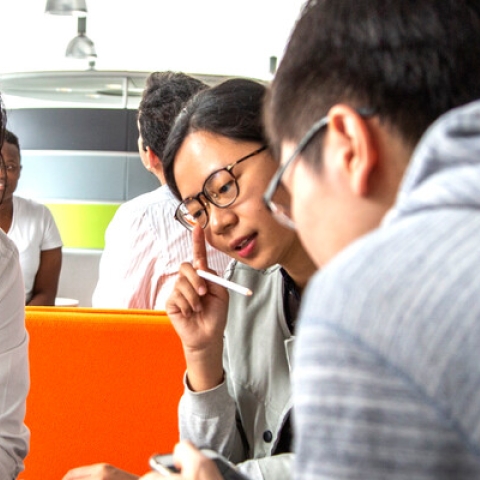
Sidebar navigation

Prepare your students for university life
And managing independent study
1 big difference between school and university is the level of independence expected of students.
As well as possibly living away from home, most of your student's time at university will be spent studying independently.
What is independent learning?
A big difference between school and university is the teaching style, with an emphasis on independent learning. Let's first understand the different ways students learn at university:
- Lectures
- Seminars
- Tutorials
- Practical Sessions
- Lab Work
- Workshops
- Group work
- Field trips
These ways of learning are usually led by academics and teaching staff in what we call timetabled 'contact' activities. Outside of this, students are expected to 'self-study', including reading, researching, critically evaluating and writing.
At university, students are in the driving seat of their own learning. They'll be responsible for managing their own time, setting their own goals, and working independently to achieve them. All whilst evaluating and reflecting on what has been learnt.
The hallmarks of independent learning
- Good motivation
- Independence
- Good time management
- Strong reading and writing skills
- Resilience
These skills and characteristics can be developed and strengthened through practise. Encourage your students to work on these to help them become as prepared as possible.

How to beat procrastination
Explore how to stop putting things off and support your learning with these tips.

Working in groups
How to work as a team and plan ahead to give your group the best chance to succeed.
Preparing students for learning at university
You can start promoting independent learning in school or college to prepare your students for university. Opportunities to develop their academic skills and knowledge can come from lots of different sources.
The most important thing is that students are able to reflect on what they have learnt. Here are a few examples.
MOOCs
MOOCs are massive open online courses and are free resources covering various academic topics.
MOOCs go into detail about particular disciplines. For example, a student exploring criminology will find a specific MOOC on forensic criminology. And within every subject, there will be something that the students can use to learn more about their course of interest.
Documentaries
There are plenty of resources to watch, which students can use to develop their knowledge and discover different viewpoints for essays and debating, such as:
- Educational documentaries
- Ted Talks, Vlogs and YouTube
Academic reading
Academic journals are easily accessible online, just like MOOCs. Reading academic journals, books, and research-based articles is what university independent learning involves. Starting now will familiarise them with what's ahead.
JSTOR, academicjournals.org and Google Scholar are great places to access journals. For anything that students discuss, whether in an interview-type setting or in their personal statements, they'll need to reference the journal itself and the author to ensure that they're covering all bases.
Podcasts
Podcasts are a great way to gain a deeper understanding of topics from keeping up with current affairs, understanding a historical timeline to debating philosophical issues.
They are mainly free to listen to and can be accessed at any time, making it a great way for students to learn outside of the classroom.
Support for students
Share our skills resources to support their transition into university.
Written assignments
Use our resources to develop your writing style, assignment structure and understanding of key words.

Speaking skills and presentations
Discover our tips for presentation assessments and explore some of the things you could say.

How to study online
Explore some of the differences between studying online and on campus.








